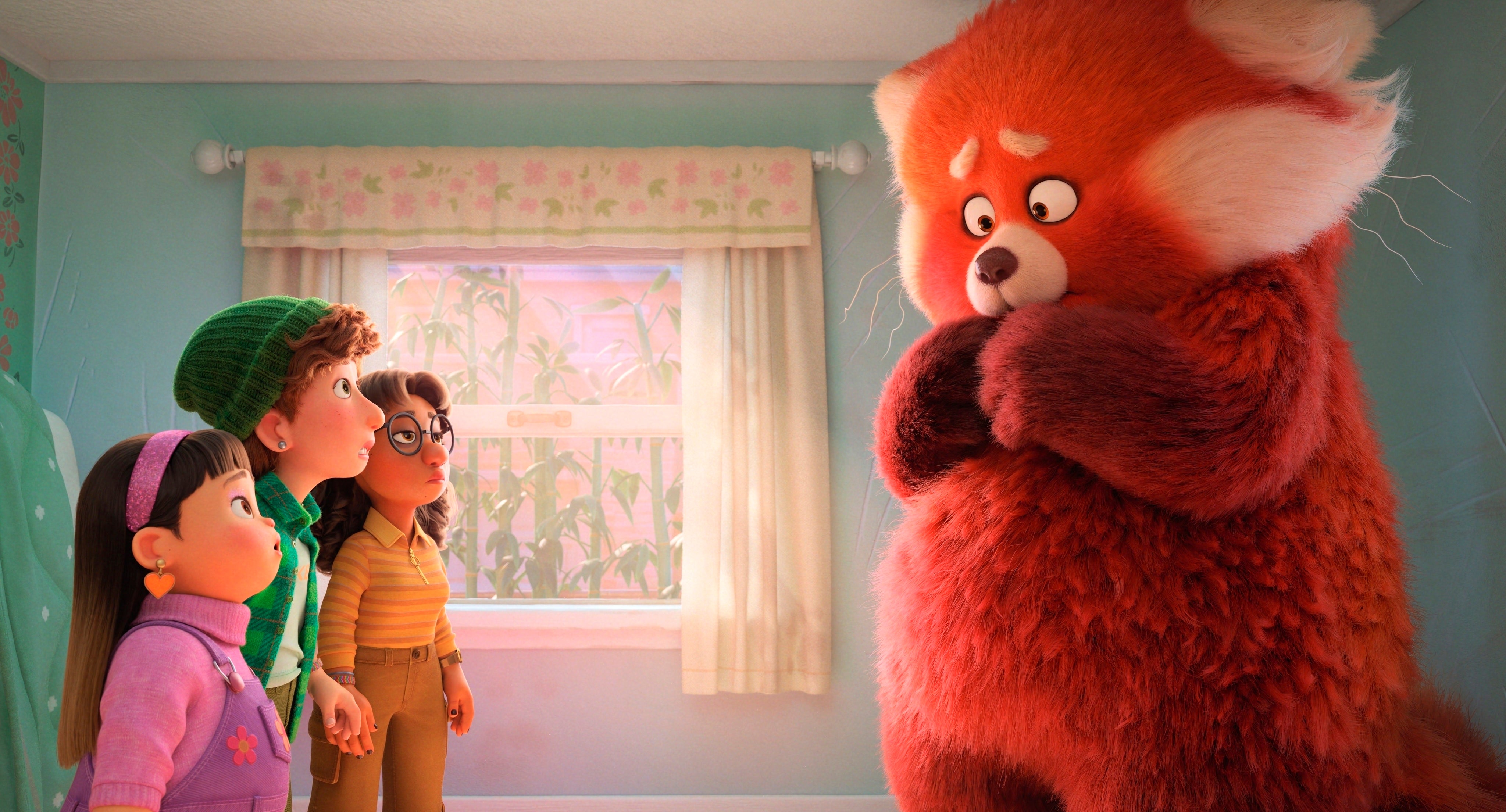The backlash to Turning Red exposes how badly we talk to children about their bodies
I had to interrogate my own underlying shame around periods, which I’d carried around since childhood


Disney/Pixar’s newest triumph, Turning Red, is ostensibly about a Chinese-Canadian 13-year-old called Meilin who, due to a magical family blessing-turned-curse, turns into a huge, fluffy red panda when her emotions are running high.
Really, though, it’s about so much more than that. Turning Red explores intergenerational trauma, the mother-daughter bond, establishing an identity outside of your family unit, parental expectations – and yes, puberty.
When Meilin first transforms into her panda-self, her mother Ming assumes that she’s got her period for the first time: cue the hilarious scene where Ming is outside Meilin’s classroom, being pursued by the school groundskeeper, holding a pack of sanitary pads aloft. Watching this genuinely felt bold and refreshing; and as I cringed, I was forced to interrogate my own underlying shame around periods, which I’d carried around since childhood.
Predictably, there’s been some backlash – reports in certain sections of the media that “concerned” parents feel that Turning Red is “inappropriate for kids” because periods are discussed, and menstruation is part of the story in a frank and shame-free way.
Well, I hate to break it to these parents – but kids have periods, too.
I hit puberty early, starting my periods before 13, and I absolutely hated it. I was consumed with embarrassment, and even the thought of talking about it – with anyone – made my chest constrict with panic and horror. The fear of someone hearing me changing a pad in the school toilets was so visceral that I wouldn’t use the bathroom all day, and went to public toilets on my route home, instead.
Maybe, if Turning Red – or something like it – had been around and on my radar, it would’ve all felt a bit less terrifying. During puberty, where children are suddenly faced with new hair growth, body shape changes, menstruation, voices breaking and a sudden influx of strange and unsettling emotions, an injection of humour can be exactly what is needed to transform a scary, uncertain and confusing stage of life into something more manageable and entirely normal – which it absolutely is.
The relationship between Meilin and Ming is at the heart of Turning Red – a nuanced and sensitive portrait of the impact of intergenerational trauma. Ming doesn’t see her daughter as a whole person in her own right; crushes her with the weight of impossibly high cultural expectations, and makes her feel like she needs to hide her interests and the personality she really has – just as Meilin’s grandmother did to Ming.
To keep up to speed with all the latest opinions and comment, sign up to our free weekly Voices Dispatches newsletter by clicking here
Meilin realises, in truly magical fashion (featuring an ethereal bamboo forest), that her mother is shaped by the way she was treated as a child – as all of us are. This is an epiphany that too many of us are still waiting to experience – and something we should all “get” before it’s too late. Giving kids a head start on understanding this kind of stuff, in the form of a funny, beautiful and highly entertaining film, can only foster better communication and more joyful relationships.
The film sees Meilin take control of her identity, and choose to embrace all of it – including the “messy” and “loud” elements represented by her red panda form. She doesn’t have to be perfect or straightjacketed by the “perfect daughter” and “perfect immigrant” expectations that are ultimately impossible to meet.
Exploring who we are; experiencing the heady rush of first crushes and understanding that our personalities are complex and multifaceted is part of growing up – and should be celebrated, not squashed.
Turning Red stands out in so many positive ways. The four girls in Meilin’s heartwarming friendship group have diverse body shapes and personalities. There’s a rich sense of cultural diversity.
Meilin’s Chinese heritage is celebrated. Girls are presented as being unapologetically into maths and studying and also interested in boys and bands. Mean kids, like Tyler, don’t have to stay mean – they can change and they can be befriended and their walls might come down. The music, by Billie Eilish and Finneas, doesn’t suck.
This where kids’ films should be going – pads, periods and all – and the haters, quite frankly, can go hug a panda.
Join our commenting forum
Join thought-provoking conversations, follow other Independent readers and see their replies
Comments
Bookmark popover
Removed from bookmarks